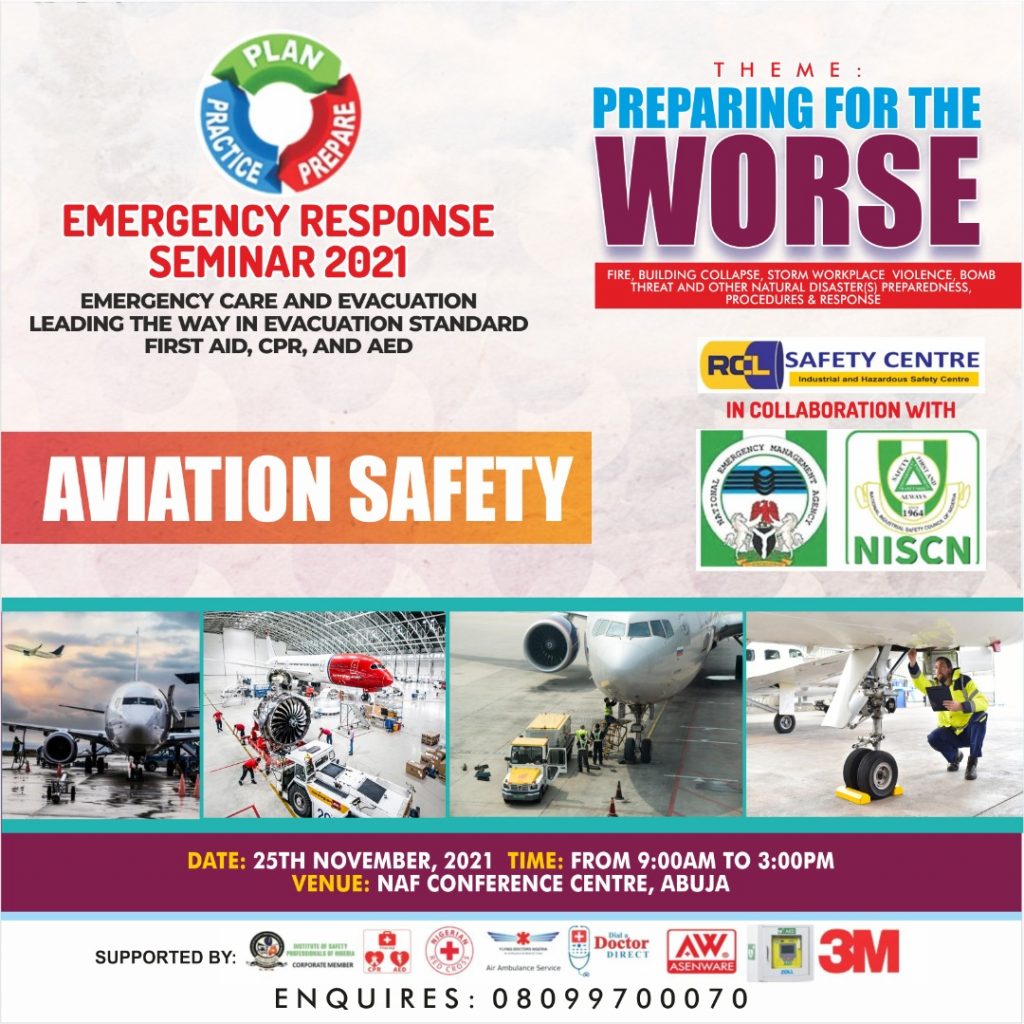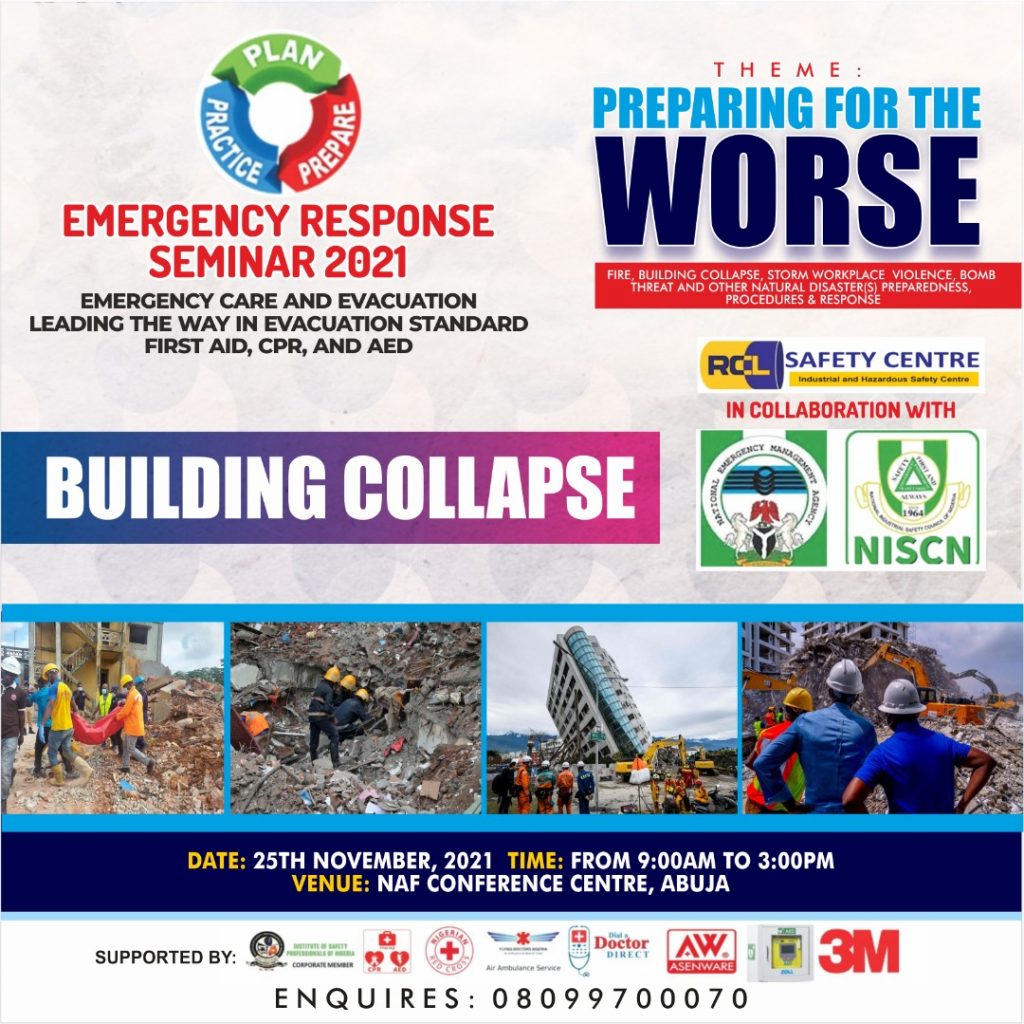
Aviation security covers the techniques and methods used to protect the safety of passengers at airports, airport personnel and the aviation industry in general against:
- accidental or malicious harm;
- unlawful intrusion; and
- other threats.
It is important that the safety and security standards adopted in the Nigerian aviation sector be given proper attention to ensure the protection and safeguarding of all stakeholders against acts of unlawful interference or other threats. However, aviation security in Nigeria is fraught with challenges and this has brought about recent deliberations from the government, regulators, the aviation industry and the public. To achieve effective aviation safety and security standards the government, regulatory authorities, aviation agencies, security personnel and other security departments must work together to ensure the effective implementation of the standards and recommended practices for international aviation security.
The formulation and adoption of the SARPs for international civil aviation is the most important legislative function performed by the International Civil Aviation Organisation (ICAO). The measures taken by the ICAO to prevent all acts of unlawful interference against civil aviation throughout the world are crucial to the future of civil and international aviation.
The SARPs for international aviation security were first adopted by the ICAO Council in March 1974 and designated as Annex 17 to the Chicago Convention, which provides for standard procedures and guidelines to regulate security and safety in the civil aviation industry. Annex 17 contains specific provisions on safety standards to safeguard civil aviation against acts of unlawful interference.
The most salient provisions of Annex 17 include:
- Standard 3.2.2, which provides that each contracting state must ensure that there is an authority responsible for the coordination and implementation of security controls at each airport;
- Standard 4.2.2, which provides that each contracting state must ensure that security restricted areas are implemented at airports based on security risk assessments; and
- Standard 4.2.3, which provides that a contracting state must ensure identification systems are in place to safeguard security restricted areas at airports.
The Nigerian Civil Aviation Authority (NCAA) is responsible for maintaining aviation security and ensuring that the industry is protected from unlawful interference at Nigerian airports. The NCAA promulgated the Civil Aviation Regulations in 2006 to provide national requirements in line with the provisions of the Civil Aviation Act 2006 and to ensure safety management and training systems conform with the SARPs.
Part 17 of the Civil Aviation Regulations 2015 on aviation security provides for aviation security programmes, measures, processes, procedures and practices aimed at safeguarding civil aviation against acts of unlawful interference. Part 17 of the regulations incorporates Annex 17 of the SARPs. Despite the current standards, recently there have been issues ranging from malfunctioning aircraft parts to theft and other similar aviation security breaches. The existing safety standards must be adhered to in order to prevent further issues and security threats.
Further, it is also expected that airline operators ensure their aircraft are airworthy and have well-functioning parts and compartments to avoid accidents. In a recent incident at the Abuja airport, a private jet skidded off the runway during landing due to malfunctioning landing gear. There was also a recent incident where the emergency exit door of an aircraft carrying passengers fell off at Abuja airport. These incidents point to not only a lack of adequate aircraft maintenance, but also the failure to perform periodic inspections by airlines and their operators. If diligent periodic checks are made by appropriate agencies, the risk for accidents will be significantly reduced. By contrast, in the United States, airlines and other commercial operators undergo a continuous inspection programme approved by the Federal Aviation Administration.
Another issue affecting aviation security in Nigeria relates to stowaways. A ‘stowaway’ is a person who discreetly boards an aircraft in order to travel to another destination without paying the fare and avoids being noticed. Stowaways are likely to have been aided by personnel working at the airport who have regular access to restricted areas. As a result, even airport security cameras and security personnel have been unable to identify and act on this security breach. This implies that security at Nigerian airports does not comply with the prescribed safety standards as prescribed in Annex 17 Standard 3.4.3 of the SARPs, which states that personnel carrying out screening should be certified in accordance with the requirements of the national civil aviation security programme (NCASTP). The requirements of the NCASTP include the following:
- security personnel must undergo an aviation security course from a certified training provider;
- a proper background check must be made on security personnel; and
- training certificates must be issued.
Insufficient security checks can also be attributed to the lack of adequate security facilities and skilled personnel with adequate knowledge of safety standards. Some countries have successfully tackled the issue of stowaways at airports by ensuring adequate security facilities and engaging skilled personnel, including paramilitary forces as security.
Another safety and security issue affecting the aviation industry in Nigeria is the issue of theft. Recently, a private jet allegedly had its cargo compartment robbed while it was taxiing on the runway at Lagos airport to the arrival hangar. This suggests that airport security personnel failed to ensure that access to restricted areas was sufficiently controlled through the use of an airport restricted area permit system to identify and grant access to only authorised persons and vehicles. In Canada, in order to restrain unauthorised persons from restricted areas at the airport, the Canadian Air Transport Security Authority introduced a restricted area identity card which is issued after regular security checks are conducted and contains biometric information, including fingerprints and iris scans of the cardholder. Nigerian aviation security authorities should adopt similar methods of restriction, which would foster a better standardised airport technology system to aid with such security issues.
In order to improve safety standards in the aviation industry, the minister of state for aviation recently stated that aviation security personnel across the country will begin carrying firearms while on duty at airports. This new development may have its benefits, but it also has its shortcomings. For example, there will likely be disputes among the airport security agencies, including:
- the Police;
- Customs;
- the National Drug Law Enforcement Agency; and
- aviation security.
These agencies are under different control and command, which may lead to a conflict of duties and could affect the safety and security of airports in terms of firearm misuse. By contrast, in UK airports, security personnel carry firearms only when there are specific threats to security. Another recent improvement in safety and security standards at Nigerian airports was the introduction of a directive by the House of Representatives for the investigation and audit of all registered aircraft by the Aviation and Commerce Committees. This order was made to ensure aircraft compliance with extant operational and safety standards.
Although there are existing regulations and guidelines on safety and security standards, there are still multiple challenges restricting the implementation of these standards. These include the following:
- Multiple aviation security agencies –the aviation industry has multiple operational security agencies regulating its affairs, which has led to the overlapping of duties across agencies, which could create a gap and lead to safety breaches. The relevant aviation security agencies include:
- the Police;
- Customs;
- the National Drug Law Enforcement Agency;
- aviation security personnel; and
- other security personnel.
- Inefficient personnel – the Nigerian aviation industry is large and involves a lot of personnel, including aviation experts and those who have minimal knowledge of the aviation industry. By employing security personnel that lack adequate knowledge, the aviation industry is put at risk.
- Lack of a standardised technology system – there are various threats within the aviation industry both at airports and within security agencies. The use of standardised technology would improve efficiency within the industry.
- Lack of proper government intervention – security is a vital issue in any country and Nigeria has recently experienced various security threats. Therefore, aviation security should be a critical national concern; unfortunately, the government is not sufficiently involved with airline operators to ensure that security measures are adhered to.
The Nigerian aviation industry requires some improvements especially regarding security and safety measures. Some of the recommendations for an improved safety and security standard include the following:
- The Nigerian government should work together with aviation agencies, airline operators, aviation security personnel and other security agencies. The International Air Transport Association has provided four principles to guide the cooperative security efforts of governments and aviation industry bodies, which should be applied in Nigerian aviation. The principles include:
- risk-based measures to ensure that limited resources are applied where the threats are greatest;
- sharing of information between government and aviation industry bodies to enable effective risk assessments;
- implementation of global standards in security systems to support effective collaboration between all parties in all locations;
- capacity building; and
- the mutual recognition of standards to improve effectiveness and efficiency.
- There should be a proper and efficient review by aviation agencies and regulators to identify any safety and security breaches. The relevant agencies should also conduct regular review and appraisal of personnel to ensure safety requirements are adhered to.
- Aviation agencies recruiting personnel should conduct thorough due diligence on security services employment candidates. Security personnel should also be sufficiently trained and only personnel with adequate safety and security knowledge and skills should be employed.
- The aviation industry should make use of standardised technology for efficient security measures. There should be sufficient closed-circuit television camera systems in place at strategic areas of airports, including restricted areas to monitor passengers and personnel on duty. The government could adopt a technological security system similar to the one at Ben Gurion Airport in Israel where staff operate an automatic luggage security checking system called hold baggage screening. The system operates a 100% automatic technological security check method. When standardised technology has been implemented, the requisite number of people can be employed to oversee such systems.
- To avoid the overlapping and confusion of duties between different security agencies, the management of airport security personnel should be centralised. In Australia, the Australian Federal Police is the primary law enforcement agency at the nine major airports in the country. Nigeria could adopt this approach and avoid the overlapping of duties by properly training a primary security agency, which solely manages aviation security.

